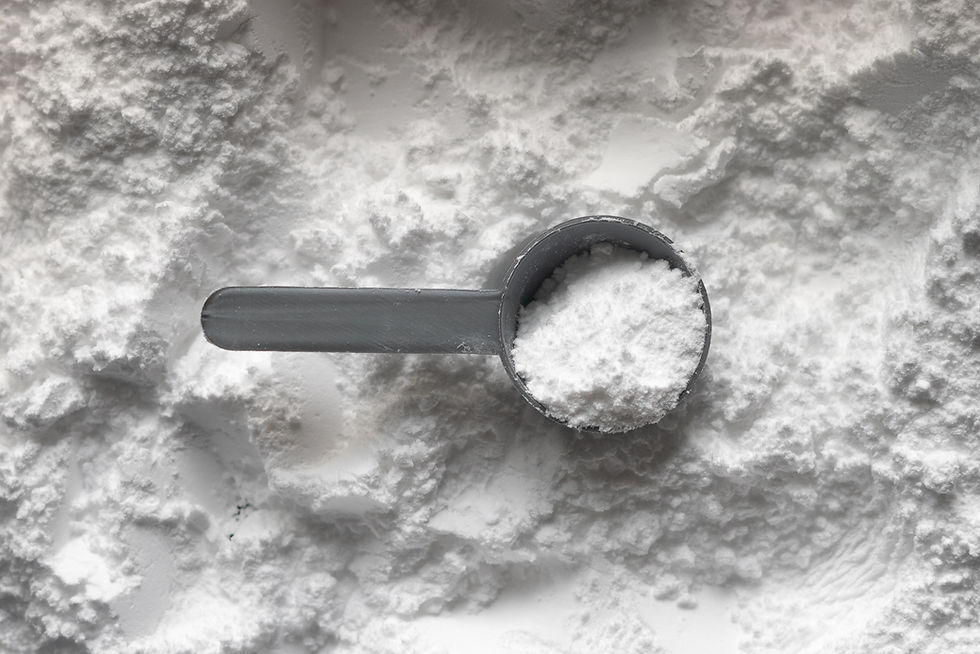Top 5 Protein Sources for Maximizing Muscle Gain
- Wisesports

- Aug 14, 2023
- 4 min read
When it comes to building muscle, proper nutrition is key. Protein, the building block of muscle tissue, plays a crucial role in promoting muscle growth and recovery. Incorporating the right protein sources into your diet can make a significant difference in your muscle-building journey. In this article, we'll explore the top 5 protein sources that are renowned for their ability to aid in muscle gain. Our top 5 are selected for the protein content, but also the other nutrients they contain and their versatility within a meal plan. When we are choosing protein source to include in our meal plans, we need to look at protein content, fat content and other micronutrients they contain and their ability to aid health and recovery.
1. Chicken Breast

Chicken breast is a staple in many bodybuilders' diets, and for good reason. It's an excellent source of lean protein, containing approximately 31 grams of protein per (100-gram) serving. Not only are chicken breast rich in protein, but it also contains essential amino acids that support muscle repair and growth. Opting for skinless, boneless cuts minimizes unnecessary fat intake while maximizing protein content. Great to use for building muscle and to help with protein intake during fat loss phases due to its lower calorie components.

2. Lean Beef
Lean beef, such as sirloin or tenderloin, is another fantastic protein source for muscle gain. A (100-gram) serving of lean beef provides around 26 grams of protein, along with essential nutrients like iron and zinc. The protein in beef is rich in high-quality amino acids that contribute to muscle development and recovery. Be mindful of portion sizes and opt for lean cuts to ensure you're getting the most protein without excessive saturated fat. Great for its overall nutrient profile but due to higher fat content which comes with high calorie profile, beef is a great option for muscle building but making sure moderate intake during fat loss phases.
3. Greek Yoghurt

Greek yoghurt is a versatile and nutritious protein source that boasts approximately 10 grams of protein per 100-gram serving. What sets Greek yoghurt apart is its higher protein content compared to regular yoghurt. It's also rich in probiotics, which can aid in digestion and support overall gut health. To enhance the protein content further, you can add nuts, seeds, or berries to your Greek yoghurt. Greek Yogurt is also very versatile to add protein content to baking such as breads and doughs for lower calorie high protein recipes.

4. Eggs
Eggs are a complete protein source, meaning they contain all nine essential amino acids necessary for muscle growth. One large egg provides around 6 grams of protein, making them a convenient and versatile option. Additionally, eggs are rich in nutrients like choline, which supports brain health and metabolism. Including whole eggs in your diet can contribute to both muscle gain and overall well-being. Egg whites contain most of the protein content compared with the yolk that holds most of the nutrients and fats. So, if we a looking strictly on protein content egg whites are great during a fat loss/musclebuilding phase as most of the calories are contained in the yolk, however we miss out on the micronutrients the yolk has to offer.
5. Plant-Based Options: Lentils and Quinoa

For those following a plant-based or vegetarian diet, lentils and quinoa are excellent protein sources. Lentils offer approximately 9 grams of protein per half-cup serving and are also high in fiber, aiding in digestion and satiety. Quinoa, a pseudo-grain, contains all nine essential amino acids and delivers around 4 grams of protein per half-cup serving. Combining these plant-based protein sources with other complementary foods can ensure you're getting a complete amino acid profile.
Notable Mentions: Salmon Salmon is not only rich in protein, with around 25 grams per (100-gram) serving, but it's also loaded with heart-healthy omega-3 fatty acids. These fats have anti-inflammatory properties that can aid in muscle recovery and overall health. Cottage Cheese Cottage cheese is a slow-digesting protein source that provides around 11 grams of protein per 100-gram serving. It's also a good source of casein protein, which provides a steady supply of amino acids to muscles, making it an ideal choice before bedtime. Tofu Tofu is a popular plant-based protein source that contains approximately 8 grams of protein per (100-gram) serving. It's also rich in iron and calcium, making it a versatile option for both muscle gain and bone health. Turkey Breast Similar to chicken breast, turkey breast offers a lean protein source with approximately 29 grams of protein per (100-gram) serving. It's a great alternative to chicken and can be included in various dishes for variety.
Tinned Tuna
Tinned tuna is a convenient protein source that provides around 25 grams of protein per (100-gram) serving. It's not only rich in protein but also contains omega-3 fatty acids that support joint health and inflammation reduction.
Protein Powder
Protein powder supplements, such as whey, casein, or plant-based options, can be an effective way to meet your protein needs, especially for those with busy lifestyles. Protein powder can provide around 20-30 grams of protein per serving and is easily incorporated into shakes and smoothies. Building muscle requires a combination of effective training and proper nutrition, with protein playing a central role in the latter. Incorporating a variety of protein sources into your diet ensures that you're providing your muscles with the essential nutrients they need to grow and recover efficiently. Whether you prefer lean meats or plant-based options, the key is to maintain a balanced and protein-rich diet that supports your fitness goals.
The information in this blog is design to inform and is the opinion of the author. it is not designed to replace advice given to you by your practitioner. Remember to consult with a healthcare or nutrition professional before making significant dietary changes, especially if you have specific health concerns or dietary restrictions.



Comments